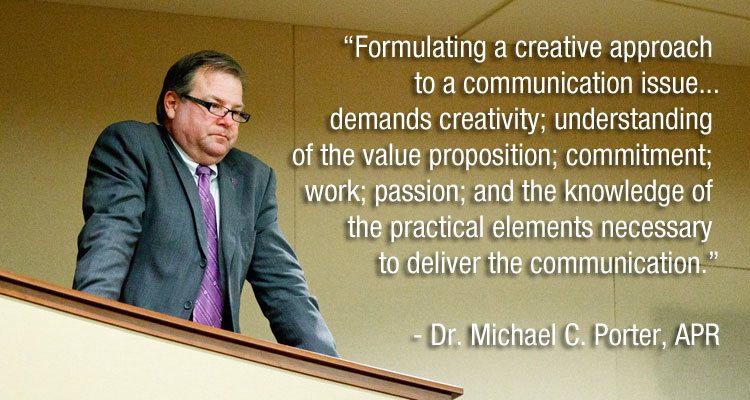In the TV news business, when a reporter “enterprises” a story it means the person has developed and delivered material that otherwise would have gone unnoticed. This may be an in-depth profile of a homeless family that turns into a one-hour special, or even an investigative report that reveals a whistle blower on an issue, generating a thread of news across all media outlets.
The enterprised story begins with an idea—a realization that something of value deserves attention. However, simply identifying these hidden opportunities does not represent the prize. The enterprising bit comes through gathering information and then working to find ways to pull all the elements together practically to make a compelling story—and knowing what message goes with it. Following through on this effort generally takes some element of passion for the story from the reporter, and some tie-in with the goals of the news organization.
Think about that process through the lens of entrepreneurship. The idea, however revolutionary or valuable to a target market, cannot stand on its own to reach fruition. Successful entrepreneurship requires commitment, work, passion and, most importantly, an understanding of the mechanics of ushering the idea to practical and profitable delivery.
Every professional communicator exercises some level of these entrepreneurial skills on a daily basis. Certainly some do this more effectively than others, but the simple act of formulating a creative approach to a communication issue or even developing message strategy demands creativity; understanding of the value proposition; commitment; work; passion; and the knowledge of the practical elements necessary to deliver the communication.
Like reporters and entrepreneurs, many “stories” generated by communicators never go much beyond the excitement of ideation. But like great entrepreneurs and journalists, excellent communication practitioners generate many possible solutions and think each through the process of execution.
The most savvy communicators and entrepreneurs also understand that any idea (regardless of how dear it has become to its creator) must be sidelined at the point in the process where the return on investment of effort or cash no longer makes sense. For both groups this can be the most challenging part of the process.
Still, when someone manages to take a business or message to a place no one has gone before, it can seem like magic…even if we know it’s really more about where the audience is standing and how hard we worked to position the mirrors.
Dr. Michael C. Porter, APR is director of the Master of Business Communication program in the Opus College of Business







